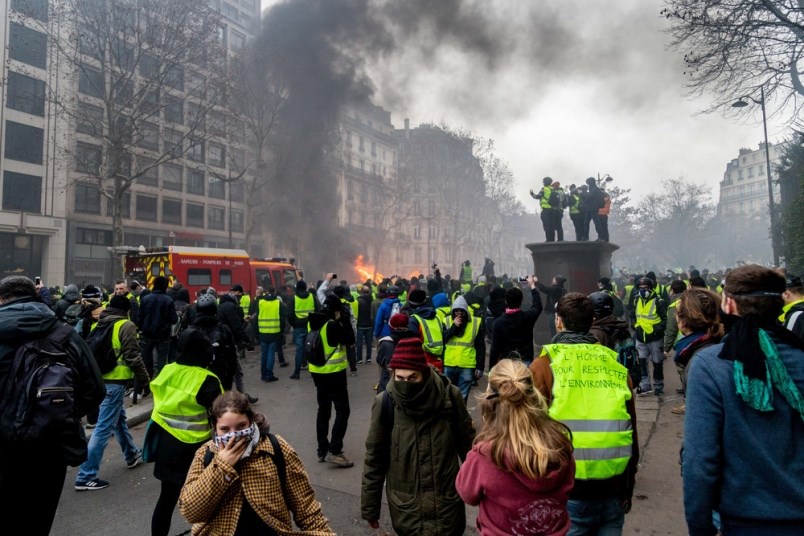The German philosopher Georg Wilhelm Friedrich Hegelwas considered to be an idealist. Among his two famous quotes are the following: “We learn from history that we do not learn from history,” and, “Genuine tragedies in the world are not conflicts between right and wrong. They are conflicts between two rights.”
In my busy weekend schedule, I noticed a news of ‘yellow vest’ protesters in France asking their government not to increase taxes on the poor, but rather to impose more taxes on the rich. It was surprising to me how quickly a movement started and made headlines in global news. What was a good development in my opinion was that the government had listened to the masses, partially, and agreed to eliminate a planned increase in fuel taxes and freeze electricity and gas prices in 2019. Such flexibility has rarely occurred in history, but it is, of course, considered a good sign when government is willing to listen to the public.
For some, it would be an indicator of good leadership when the rulers realize that some or many of the demands of the public seem genuine. Charles Dickens best explains such situations, which have occurred for thousands of years all over the globe, in his classic 1859 novel, A Tale of Two Cities: “It was the spring of hope, it was the winter of despair.”
Any global citizen realizes the costs of living to be a global issue nowadays, when minimum wages barely cover basic residential costs. In many developed countries and regions, including North America, minimum wages are close to $480 per week and approximately $25,000 per year.
On the other hand, the rents paid by hardworking workers to live in a decent locality also seem to be close to the same amount, or much higher in most cases. The simple question is, how are the poor going to survive, and then how are they going to pay for additional expenses of transportation, childcare, education, healthcare, and other basic living expenses?
While the above mentioned wages are not in any way difficult for economists to understand in developed countries, the situation is much more challenging for policy makers and workers in developing countries. The entire monthly and annual wages are simply not sufficient to pay for routine expenses for millions of workers worldwide. This causes frustration, diminishing hope, and also leads directly or indirectly to economic and social problems, including child labour.
The World Bank says 10% of the world's population lived on less than $1.90 a day in 2015. Another report from the International Labour Organization says unfortunately 168 million children worldwide are trapped in child labor, accounting for almost 11% of the overall child population. According to the ILO, "In its most extreme forms, child labour involves children being enslaved, separated from their families, exposed to serious hazards and illnesses and/or left to fend for themselves on the streets of large cities – often at a very early age."
As a global community member and parent, I realize how dear my children are to me, and it certainly hurts me that even today, despite all the developments, millions of humans are hungry at the moment, and thousands of children unfortunately even get physically abused for perhaps a few dollars.
In the present era, media and many journalists have done a great job to highlight the problems of the world. Social media, if used positively, helps us to understand the pains of humanity much more realistically. Historians are a little divided whether Marie-Antoinette, the queen of France, actually said, “Let them eat cake,” during the French Revolution, upon learning that the peasants had no bread.
However, because cake is more expensive than bread, the anecdote has been cited as an example of her lack of understanding of the conditions and daily lives of ordinary people.
Policy makers and the elite are nowadays much better aware of the situation of the poor and the middle classes because of the media. Also, many rich have set records in the last few years by giving, or at least pledging, the largest philanthropic donations in human history. However, what remains important for both parties in this case is the fact that negotiations are conducted in a peaceful and expeditious manner.
Resolution of problems in a effective manner is always ideal, and hopefully both parties will learn from history, rather than just considering only themselves to be right.
As a global community member, I believe that a vision of peace and prosperity can always help, and lead towards a better future for fellow global community members.
Faisal Rashid is a global community member living in Fort St. John.




